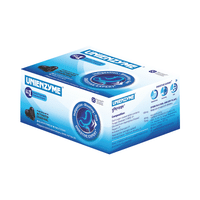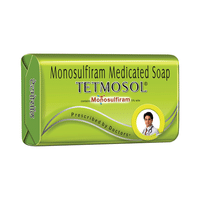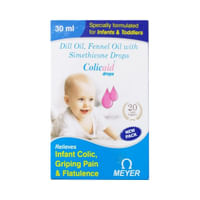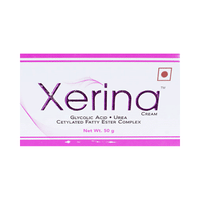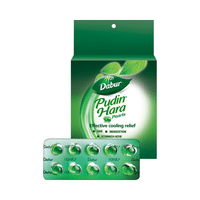Rs.53.30for 1 bottle(s) (30 ml Oral Suspension each)
food interaction for Surellin-CV
alcohol interaction for Surellin-CV
pregnancy interaction for Surellin-CV
lactation interaction for Surellin-CV
food
alcohol
pregnancy
lactation
Surellin-CV Dry Syrup is to be taken with food.
This will help to avoid stomach upset.
None
This will help to avoid stomach upset.
None
CAUTION
It is not known whether it is safe to consume alcohol with Surellin-CV Dry Syrup. Please consult your doctor.
CONSULT YOUR DOCTOR
Surellin-CV Dry Syrup is generally considered safe to use during pregnancy. Animal studies have shown low or no adverse effects to the developing baby; however, there are limited human studies.
SAFE IF PRESCRIBED
Surellin-CV Dry Syrup is safe to use during breastfeeding. Human studies suggest that the drug does not pass into the breastmilk in a significant amount and is not harmful to the baby.
SAFE IF PRESCRIBED
SALT INFORMATION FOR Surellin-CV
Amoxycillin(200mg)
Uses
Amoxycillin is used in the treatment of bacterial infections.
How it works
Amoxycillin is an antibiotic. It kills bacteria by preventing them from forming the bacterial protective covering (cell wall) which is needed for them to survive.
Common side effects
Vomiting, Diarrhea, Nausea, Skin rash, Urticaria, Itching, Hemolytic anemia, Decreased white blood cell count (lymphocytes), Colitis, Stevens-Johnson syndrome, Toxic epidermal necrolysis, Crystals in urine, Erythema multiforme, Interstitial nephritis, Dizziness, Convulsion, Hepatitis (viral infection of liver), Cholestatic jaundice, Anaphylactic reaction
Clavulanic Acid(28.5mg)
Uses
Clavulanic Acid is used in the treatment of bacterial infections.
How it works
Clavulanic Acid is a beta-lactamase inhibitor. It works by blocking an enzyme (beta lactamase) produced by bacteria to inactivate antibiotics. This reduces resistance and enhances the activity of antibiotics against bacteria. It does not have any antibacterial activity of its own.
Common side effects
No common side effects seen
SUBSTITUTES FOR Surellin-CV
279 Substitutes
279 Substitutes
Sorted By
 Rs. 67.54pay 22% more per ml of Oral Suspension
Rs. 67.54pay 22% more per ml of Oral Suspension Rs. 60.45same price
Rs. 60.45same price Rs. 67.53pay 13% more per ml of Oral Suspension
Rs. 67.53pay 13% more per ml of Oral Suspension Rs. 67.87pay 18% more per ml of Oral Suspension
Rs. 67.87pay 18% more per ml of Oral Suspension Rs. 60.80pay 14% more per ml of Oral Suspension
Rs. 60.80pay 14% more per ml of Oral Suspension
Expert advice FOR Surellin-CV
- Amoxycillin is used to treat infections caused by bacteria.
- Finish the prescribed course, even if you start to feel better. Stopping it early may make the infection come back and harder to treat.
- Diarrhea may occur as a side effect. Taking probiotics along with Amoxycillin may help. Talk to your doctor if you notice bloody stools or develop abdominal cramps.
- Stop taking this medicine and inform your doctor immediately if you develop an itchy rash, swelling of the face, throat or tongue or breathing difficulties while taking it.
Frequently asked questions FOR Surellin-CV
Amoxycillin
Q. Can Amoxycillin cause allergic reaction?
Although it is rare but yes, Amoxycillin can cause allergic reaction and is harmful in patients with known allergy to penicillins. Get emergency medical help if you have any of the signs of an allergic reaction: hives; difficulty breathing; swelling of your face, lips, tongue, or throat.
Q. Can the use of Amoxycillin cause diarrhea?
Yes, the use of Amoxycillin can cause diarrhea. It is an antibiotic and it kills the harmful bacteria, however, it also affects the helpful bacteria in your stomach or intestine and causes diarrhea. If diarrhea persists, talk to your doctor about it.
Q. Can I stop taking Amoxycillin when my symptoms are relieved?
No, do not stop taking Amoxycillin and finish the full course of treatment even if you feel better. Your symptoms may improve before the infection is completely cleared.
Clavulanic Acid
Q. What is Clavulanic Acid?
Clavulanic Acid is a beta-lactamase inhibitor. It does not exert a clinically useful antibacterial effect on its own. It is used in combination with other antibiotics to increase their effect.
Q. Why is Clavulanic Acid used with amoxicillin?
Amoxicillin is a semisynthetic penicillin (beta-lactam antibiotic) that is easily broken down by beta-lactamase enzyme produced by some bacteria. Clavulanic Acid inactivates the beta-lactamase enzymes thereby preventing the breakdown of amoxicillin.













